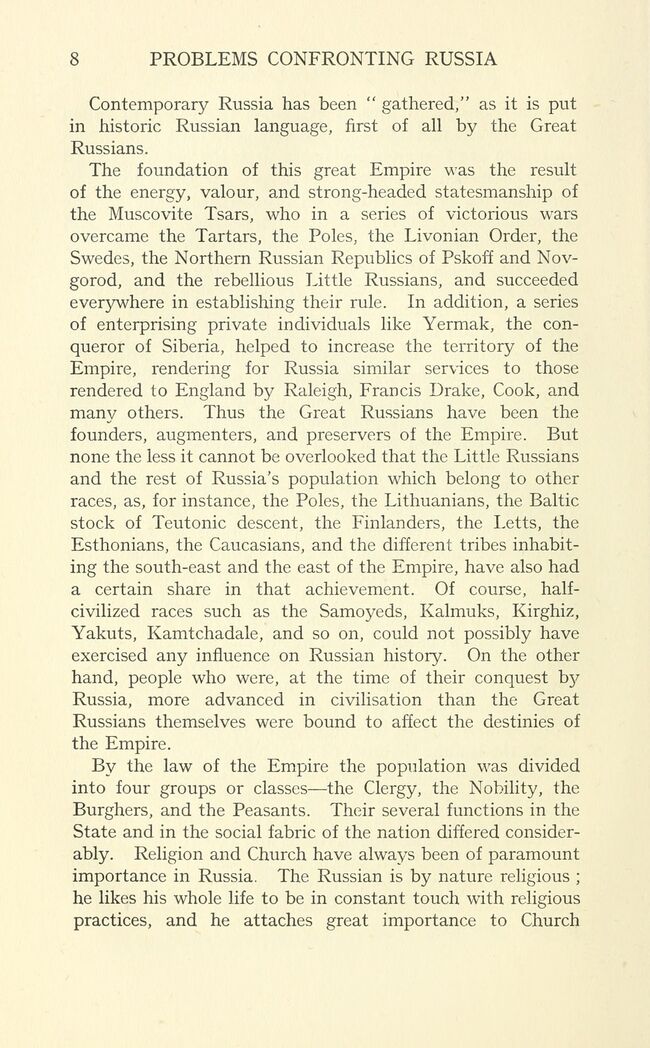
Full resolution (JPEG) - On this page / på denna sida - I. The evolution of the state and social organisations of Russia

<< prev. page << föreg. sida << >> nästa sida >> next page >>
Below is the raw OCR text
from the above scanned image.
Do you see an error? Proofread the page now!
Här nedan syns maskintolkade texten från faksimilbilden ovan.
Ser du något fel? Korrekturläs sidan nu!
This page has never been proofread. / Denna sida har aldrig korrekturlästs.
8 PROBLEMS CONFRONTING RUSSIA
Contemporary Russia has been " gathered," as it is put
in historic Russian language, first of all by the Great
Russians.
The foundation of this great Empire was the result
of the energy, valour, and strong-headed statesmanship of
the Muscovite Tsars, who in a series of victorious wars
overcame the Tartars, the Poles, the Livonian Order, the
Swedes, the Northern Russian Republics of Pskoff and
Novgorod, and the rebellious Little Russians, and succeeded
everywhere in establishing their rule. In addition, a series
of enterprising private individuals like Yermak, the
conqueror of Siberia, helped to increase the territory of the
Empire, rendering for Russia similar services to those
rendered to England by Raleigh, Francis Drake, Cook, and
many others. Thus the Great Russians have been the
founders, augmenters, and preservers of the Empire. But
none the less it cannot be overlooked that the Little Russians
and the rest of Russia’s population which belong to other
races, as, for instance, the Poles, the Lithuanians, the Baltic
stock of Teutonic descent, the Finlanders, the Letts, the
Esthonians, the Caucasians, and the different tribes
inhabiting the south-east and the east of the Empire, have also had
a certain share in that achievement. Of course,
half-civilized races such as the Samoyeds, Kalmuks, Kirghiz,
Yakuts, Kamtchadale, and so on, could not possibly have
exercised any influence on Russian history. On the other
hand, people who were, at the time of their conquest b3^
Russia, more advanced in civilisation than the Great
Russians themselves were bound to affect the destinies of
the Empire.
By the law of the Empire the population was divided
into four groups or classes—the Clergy, the Nobility, the
Burghers, and the Peasants. Their several functions in the
State and in the social fabric of the nation differed
considerably. Religion and Church have always been of paramount
importance in Russia. The Russian is by nature religious ;
he likes his whole life to be in constant touch with religious
practices, and he attaches great importance to Church
<< prev. page << föreg. sida << >> nästa sida >> next page >>